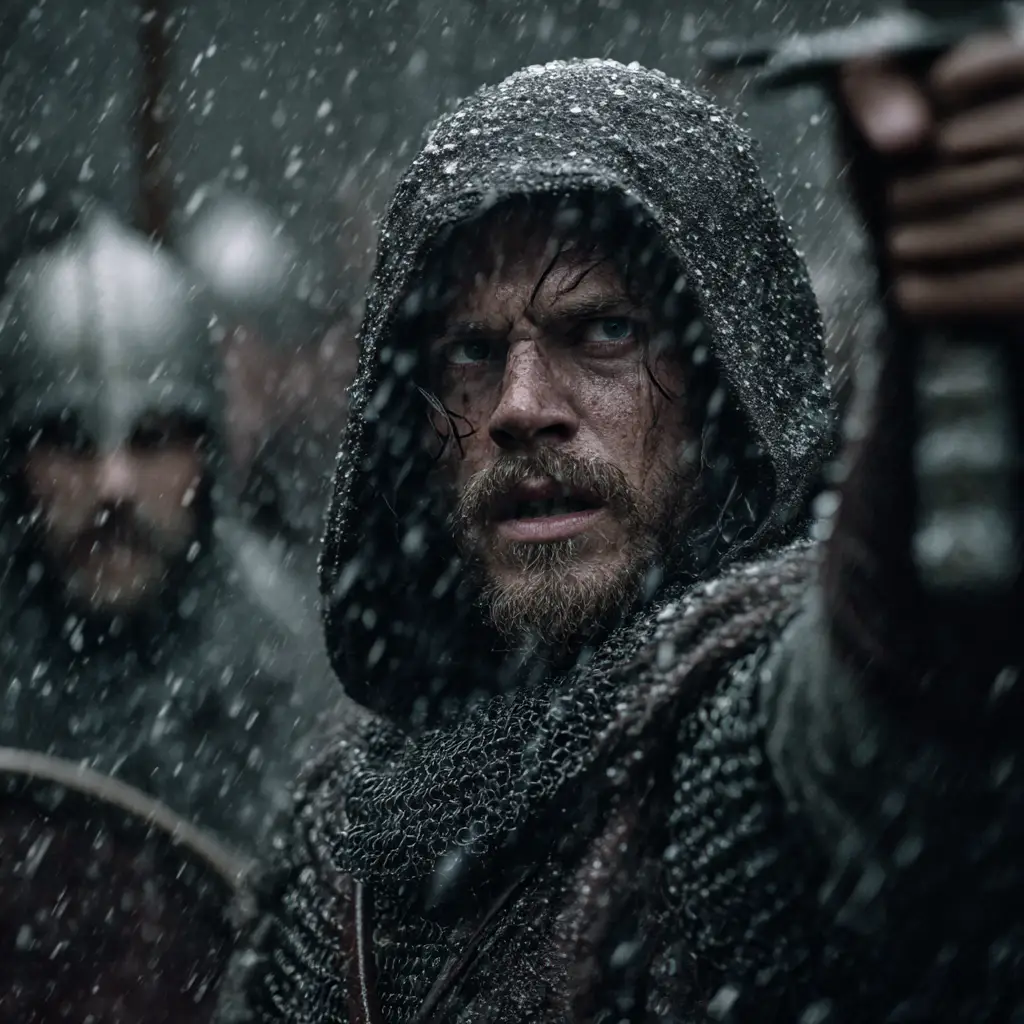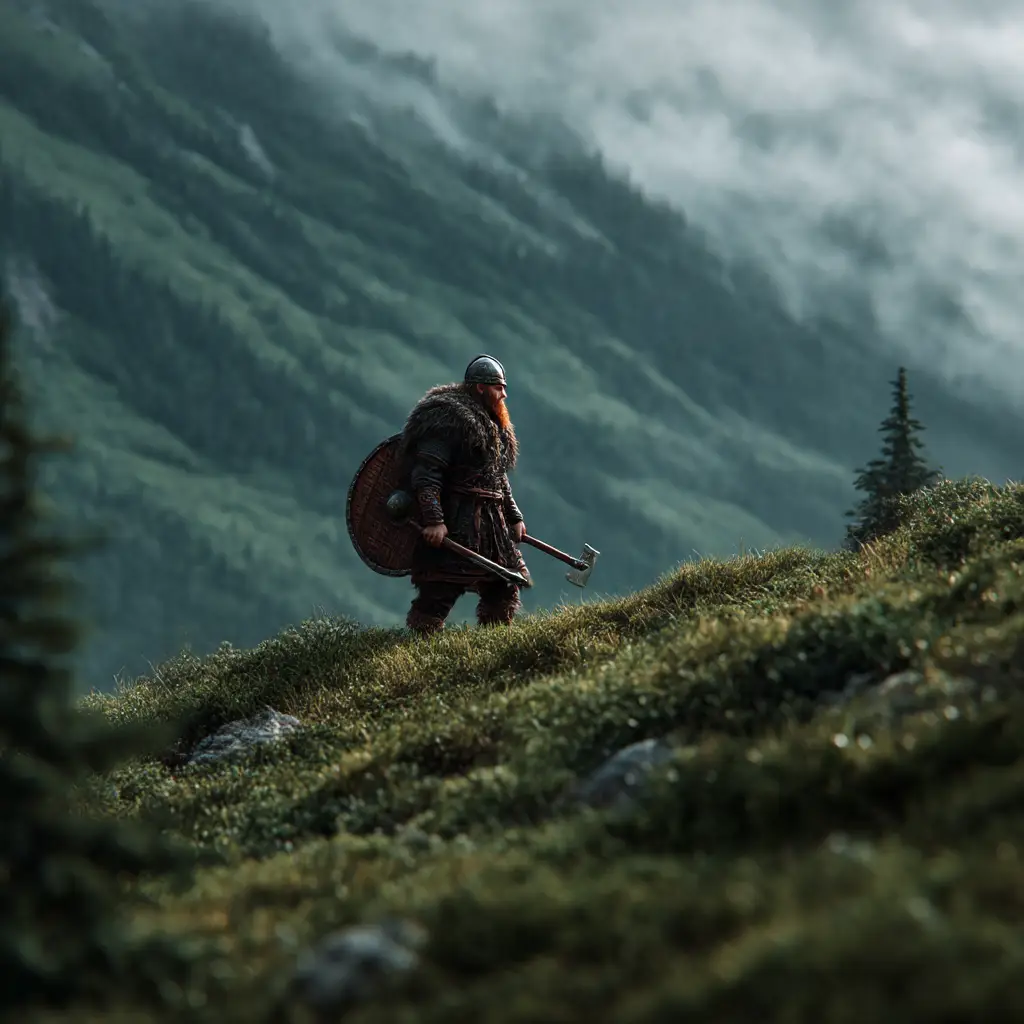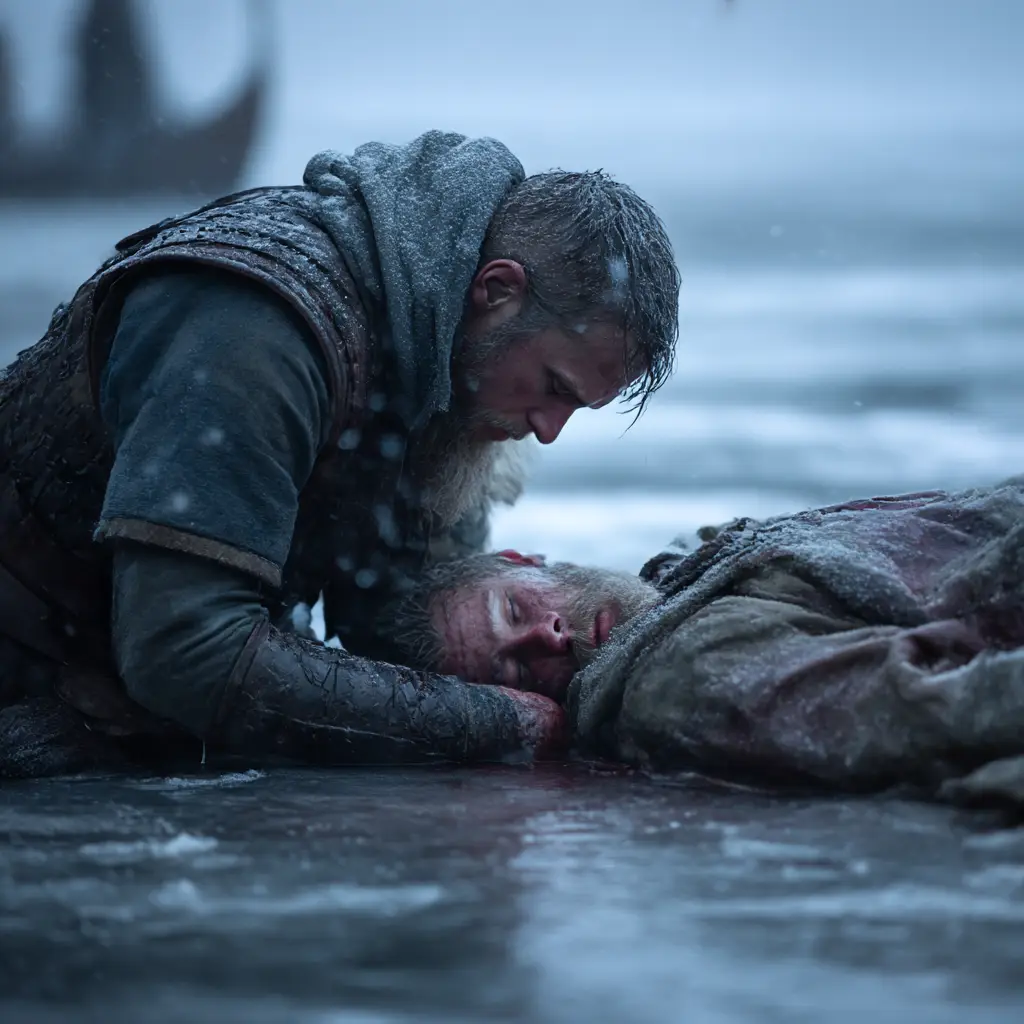In Njáls Saga, the story of Gunnar Hámundarson’s outlawry and death is one of the most powerful and tragic episodes in all of Icelandic literature. Gunnar of Hlíðarendi is portrayed as a noble and honourable warrior, unmatched in strength, courage, and skill, yet undone by fate, pride, and the rigid codes of honour that defined Icelandic society in the 10th century.
After years of tension, blood feuds, and legal disputes, Gunnar becomes involved in a series of killings that lead to his outlawry. Although he is admired for his fairness and restraint, his enemies manipulate the law at the Althing, declaring him an outlaw for three years. This verdict means that anyone can kill him without punishment if he remains in Iceland. Njál, his close friend and wise counsellor, urges him to leave the country to save his life, and Gunnar reluctantly prepares for exile.
However, as he rides away from Hlíðarendi, he looks back at his home and the beautiful green slopes of his farm. Overcome with longing for his land, his wife Hallgerður, and the life he has built, Gunnar famously says that he will not go, declaring, “Fair is the hillside—never has it seemed so lovely to me as now, with its pale fields and mown meadows, and I will ride back home and not leave.” This moment seals his fate, for returning means breaking the terms of his outlawry.
Soon after, his enemies gather to attack his farm. Gunnar defends his home alone with remarkable bravery, fighting them off with his bow and spear. When his bowstring snaps, he asks Hallgerður for two strands of her hair to repair it, but she refuses, saying she still remembers the slap he once gave her long ago. With no means to continue the fight, Gunnar is struck down, dying at his own doorway, loyal to his land until the end.
Gunnar’s death is a turning point in the saga, marking the deepening of the blood feud that will eventually consume many of the main characters. His fall symbolises the tragic conflict between personal honour and the harsh demands of Icelandic law and vengeance. Njál mourns him deeply, foreseeing that the cycle of retribution will not end until it destroys all involved.
The story of Gunnar’s outlawry and death captures the spirit of Njáls Saga: a world where loyalty, love, and fate intertwine with violence and law, and where the beauty of Iceland’s landscape stands in stark contrast to the cruelty of human conflict. Gunnar remains one of the most admired heroes in Norse literature—a man of integrity and courage whose downfall is as moving as it is inevitable.


